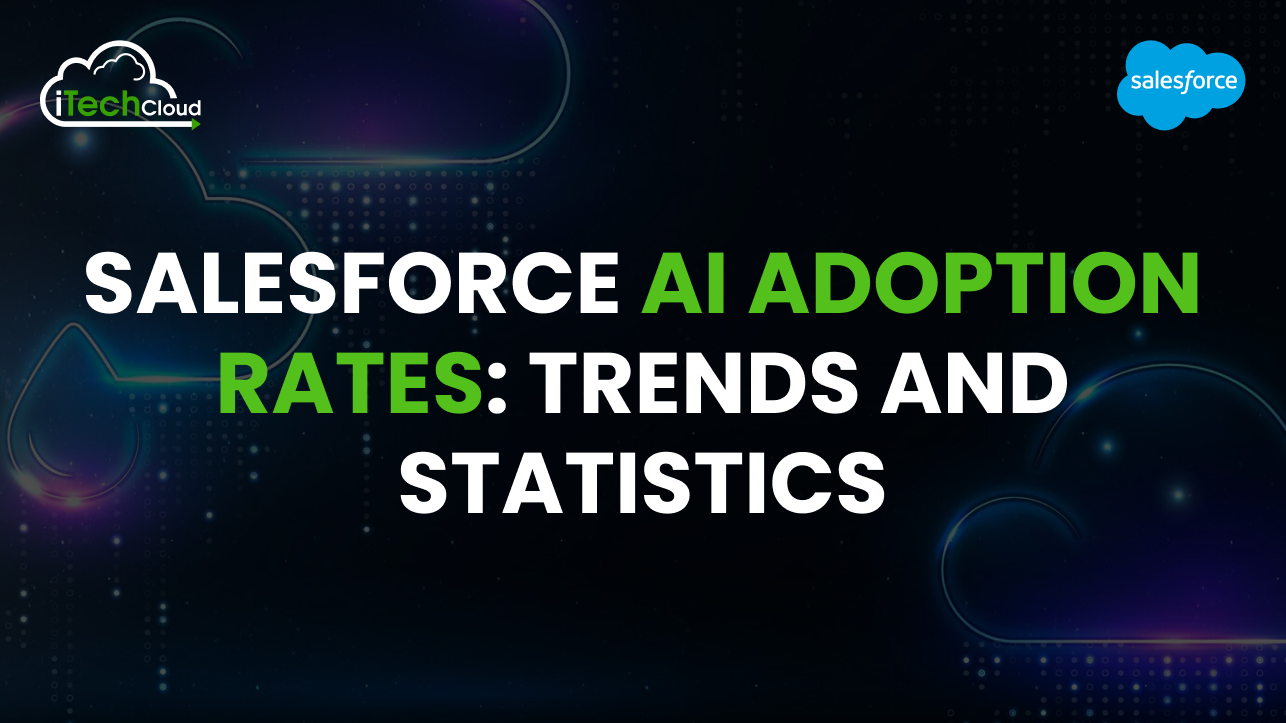Salesforce, a leading customer relationship management (CRM) platform, has been at the forefront of integrating artificial intelligence (AI) into its ecosystem. With the rise of AI-powered automation, predictive analytics, and generative AI tools, businesses increasingly leverage AI within Salesforce to enhance productivity and drive better decision-making. This blog explores the latest adoption trends, key statistics, and insights into how AI is reshaping the Salesforce landscape.
The Rise of AI in Salesforce
Salesforce introduced AI into its platform with the launch of Einstein AI in 2016, aiming to deliver smart automation and actionable insights. Since then, AI adoption has surged as companies seek to improve customer experiences, personalize interactions, and optimize workflows.
Key Drivers of AI Adoption in Salesforce:
- Enhanced Productivity – AI automates repetitive tasks, freeing time for employees to focus on strategic initiatives.
- Improved Customer Engagement – Predictive analytics and chatbots enable businesses to deliver more personalized and proactive customer support.
- Data-Driven Decision Making – AI-powered insights help organizations make more informed choices.
- Competitive Advantage: Companies that integrate AI are better positioned to outperform competitors by offering superior customer service and streamlined operations.
Salesforce AI Adoption Statistics
Several recent reports highlight the growing adoption of AI within Salesforce. Here are some key statistics:
- According to Salesforce’s State of AI in CRM Report, over 80% of companies using Salesforce have adopted AI-powered features to improve efficiency.
- The Salesforce AI Index suggests that businesses using AI in CRM experience a 30% boost in productivity.
- Gartner estimates that by 2026, 75% of CRM applications will feature AI-powered automation, making AI a standard in customer management.
- A Forrester study indicates that AI-driven personalization in Salesforce Marketing Cloud has increased conversion rates for early adopters by 25%.
- The adoption of Einstein GPT, Salesforce’s generative AI tool, has accelerated, with 60% of enterprises integrating it into their workflows within the first year of launch.
Industries Leading in Salesforce AI Adoption
While AI adoption varies across industries, some sectors have embraced AI within Salesforce more rapidly:
- Retail & E-commerce – AI-driven recommendations and chatbots enhance customer interactions.
- Financial Services – Predictive analytics help detect fraud and personalize financial planning.
- Healthcare & Life Sciences – AI assists in patient management, diagnosis, and operational efficiencies.
- Manufacturing – AI optimizes supply chains and predictive maintenance for machinery.
- Technology & SaaS – AI improves lead scoring, customer support automation, and user behavior analysis.
Key AI Features in Salesforce
Salesforce continues to expand its AI capabilities, offering advanced tools such as:
1. Einstein AI
- Predictive analytics for sales forecasting
- Automated data entry and processing
- Lead scoring and opportunity insights
2. Einstein GPT
- AI-powered content generation for marketing and customer communication
- Chatbots that enhance customer service
- Personalized email campaigns and sales messaging
3. AI-driven Automation in Service Cloud
- Case classification and automated response suggestions
- AI-powered chatbots for instant support
4. AI-Powered Marketing Cloud
- Predictive customer segmentation
- Automated ad targeting and optimization
Challenges in AI Adoption
Despite the benefits, businesses face challenges in adopting AI within Salesforce, including:
- Data Privacy & Security – Ensuring AI models comply with regulations like GDPR.
- Integration Complexity – Merging AI features with existing CRM workflows.
- User Adoption & Training – Employees need to adapt to AI-driven insights and automation.
- Cost Considerations – Advanced AI features require investment in technology and training.
The Future of AI in Salesforce
Salesforce is set to further enhance its AI capabilities in the coming years. Key future trends include:
- Deeper AI integration across all Salesforce clouds – AI will become more embedded into sales, service, and marketing workflows.
- Improved generative AI models – AI will generate more personalized and context-aware customer interactions.
- AI-powered voice assistants – Conversational AI will improve hands-free CRM management.
- Greater emphasis on ethical AI – Salesforce is investing in bias-free and transparent AI models.
Conclusion
AI adoption within Salesforce is rapidly accelerating, transforming how businesses interact with customers and optimize operations. With increasing advancements in AI technology, Salesforce users can expect even more powerful automation, deeper insights, and greater efficiency in the years ahead. Companies that embrace AI-driven Salesforce solutions will gain a competitive edge, enhance customer relationships, and drive business success.


